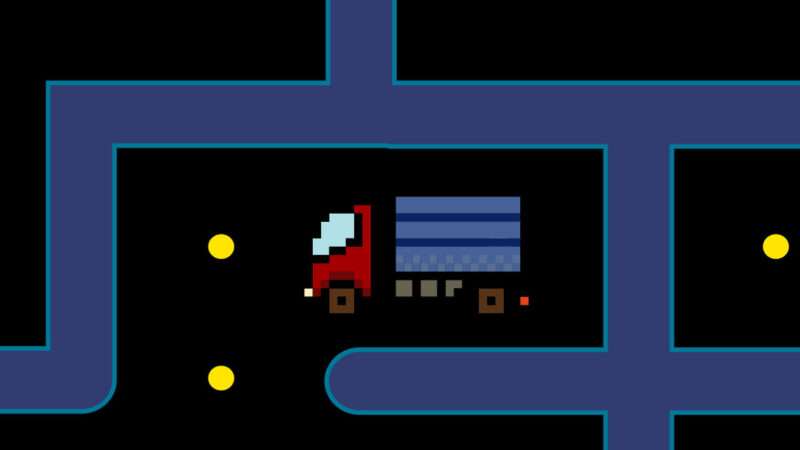
"Who will build the roads?" That's the classic gotcha question posed to libertarians, who do in fact have a lot of answers for who will build the roads. The most straightforward retort is "not the U.S. Department of Transportation, which doesn't even build the roads now."
Of all the organs of the federal government, the Department of Transportation (DOT) is the most like the gallbladder: a useless sac that, when inflamed, prevents proper circulation in the rest of the body. It should be abolished.
To understand why it could be safely eliminated, consider what it actually does now.
First, it provides infrastructure grants to state and local governments. Second, it owns and operates the nation's outdated air traffic control system, in which floppy disks are still essential. Finally, it acts as a safety regulator for the various modes of transportation, from cars to buses to trucks to trains. None of these functions requires the existence of a federal, cabinet-level department, which serves mostly to increase costs and reduce efficiency.
For starters, most highways and surface streets are owned and maintained by local and state governments, who also spend the majority of the country's road dollars. The federal government collects a federal gas tax, and various other transportation taxes, which are then distributed via grant programs back to states and local governments to spend on their own infrastructure.
When that money does come back down from Washington, it has copious strings attached to it. "Buy America" strings and union-labor strings increase costs and leave less funding for new roads or for maintenance. Other strings—such as requiring a certain percentage of the funds go to rural highways or urban bike lanes—redirect money to lower-valued, politically favored projects. The combined effect is to make infrastructure more expensive and less useful.
Because the feds are footing so much of the bill, states and local governments have less incentive to cut their own costs.
If we ended federal subsidies, states and localities might decide to forgo building more bridges to nowhere. Freed from federal restrictions on tolling and congestion pricing, they might charge travelers more (and taxpayers less) for the infrastructure they use. Some would even rely more on private infrastructure funds, which invest in projects in exchange for a cut of toll revenue or other user fees.
If the DOT is bad at funding other jurisdictions' infrastructure, it's even worse at managing its own.
Unlike other developed countries, America's air traffic control system is owned and operated by a government department: the Federal Aviation Administration (FAA), housed within the DOT. Many problems stem from this arrangement.
Countries that have turned over air traffic control operations to separate nonprofit corporations are able to buy and deploy new technology as it becomes available. The FAA's technological procurements must go through the slow-grinding federal budget process. While air traffic controllers in the U.K., Canada, and Germany are using satellite guidance, digital communications, and remote centers to guide planes, U.S. controllers are stuck using ground radar and radio communications. That's despite the FAA spending billions on modernization.
When the federal government shuts down, as it's prone to do, air traffic controllers are required to keep working without pay. That's a little worrisome from a safety perspective. It also raises the risk that if there's a big budget stand-off, air traffic controllers will find other jobs that do actually pay them.
There's an inherent conflict of interest in having the same department regulate air safety and operate the air traffic control system. It would be best to spin off air traffic control into a nonprofit user cooperative that charges fees to the consumers of air traffic control services and is freer to adopt modern technology and best practices.
The last function standing is DOT's role in safety regulation.
The really radical libertarian position would be to get the government out of transportation safety regulation entirely, instead leaving it up to insurance companies and private civil courts to provide travelers with as much safety as they're willing to pay for. But if that's a bridge too far, it would be relatively straightforward to abolish the DOT and hand this function off to an independent federal agency. That would leave safety regulation in federal hands but outside the control of a cabinet secretary mostly interested in playing politics. The states could regulate safety too, although it might not necessarily be desirable to have 50 different safety standards for semitrucks and airliners.
The optimal option is something readers can ponder the next time they're stuck in a traffic jam on a public, unpriced road.
The post Abolish the Department of Transportation appeared first on Reason.com.







